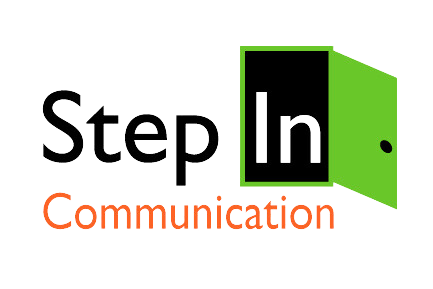
Disclosure is the hottest topic in social and digital media and is the least understood by brands AND by influencers.
Full Disclosure: I am not a lawyer and am not offering legal advice. Anyone who has questions about disclosure and how the law applies to them, should consult a licensed attorney.
Now that’s out of the way. (See what I did there!)
So, what is disclosure? By definition, it’s identifying or exposing an act or instance of something. In today’s social media environment, its theoretical underpinning is this: to help social media users identify and separate organic posts, stories or videos from posts, stories or videos for which compensation has been given. But it’s not just about compensation. The law covers material relationships which include gift cards and discounts. It also covers family and business relationships too.
In practice, the term “Wild West” doesn’t even begin to describe how it’s really being used.
What is the Law?
The “law” comes from the Federal Trade Communication and has been revised several times, as social media has grown and changed. The most recent update was September, 2017. Their website features a set of Endorsement Guides which give examples for a wide range of situations including payments, contests and soliciting product reviews.
You should bookmark this link FOREVER.
In case that feels like a bit too much to digest, the Truth In Advertising organization has distilled it to a set of bulleted lists that explain what they call the “material connection” and offers suggestions on how to comply with the law.
Disclosure for Agencies and Brand Representatives
Full Disclosure-AGAIN: I am not a lawyer and am not offering legal advice. Anyone who has questions about disclosure should consult a licensed attorney.
As a communicator, I am extremely motivated to follow the law. So I counsel my clients to do the same. But every day, my team and I see examples that are clearly paid engagements that lack the necessary disclosure.
Examples:
- Facebook and Twitter posts that feature a company that the poster clearly represents with no disclosure.
- Agency comments on an Instagram post where there is clearly a client relationship and no disclosure.
- Sending products or services to influencers to use/share/discuss and telling them – don’t bother to thank us or mention we gifted this to you.
Disclosure for Influencers
If you accepted something, you need to disclose it. It’s that simple. Familiarize yourself with the guidelines and start to implement them on your next brand activation.
And you need to make sure that the contracts you sign with brands contain disclosure requirements. We use disclosure language with a link to the FTC Guidelines in every influencer contract we manage.
Our team is hyper-aware about this topic. One of our team members participated in a course by a major Instagram influencer who is making significant income from paid engagements there. She was horrified to see a thread in the accompanying private group in which the group advised in a q/a that there is no need for disclosure when a brand “gifts” something to you. Others in the chat advised “it’s up to you if you share that it’s a gift or not.” And they even suggested that you should post something about the gift, then show the post results and pitch further business to the brand. Every single piece of advice in that thread violates the disclosure laws.
My team member was horrified.
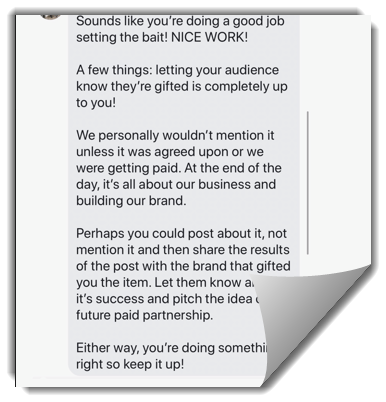
Besides the complete ignorance about the law, the additional issue is that this group is selling their “expertise” to others who are following their advice, perpetuating bad habits and encouraging others to do the same.
Here are some examples of disclosure featuring influencers I know and have worked with regularly.


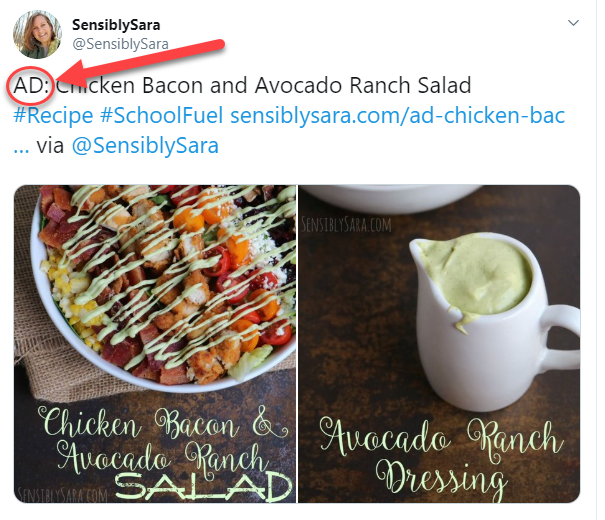
It’s not that hard.
“I see a lot of influencers use brand partner, hosted, or my personal favorite, “spon” to disclose the relationship with the brand, says Jill Robbins of Ripped Jeans and Bifocals. “My interpretation is that only “ad” or “sponsored” meet the FTC’s disclosure requirements.”
What if You Are Not Sure?
It’s anyone’s guess who the FTC might fine when disclosure isn’t obvious. The agency has been criticized for the guidelines being confusing and open to interpretation. Government agencies are often very measured in the actions they take to enforce laws and this law is no exception. Since the September 2017 guidelines have been released, they’ve sent 22 “educational” letters (which is the step prior to a warning letter) to celebrities, according to this story in the Morning Consult.
Just because you’re not a celebrity doesn’t mean you should ignore the law. Overcommunicating your relationships in social and digital posts is better than no disclosure at all.
I’m a community manager for Texas Travel Talk, a community of travel influencers. We work with brands to bring bloggers to Texas destinations and tell the destination story through blog posts and social media blitzes. These are paid relationships. We’re not perfect but we constantly review and revise our disclosure guidelines. For example, we used to put the disclosure about our financial arrangement with a destination at the bottom of each post, but because the requirement is for a disclosure to be up front and clearly noticeable, we’ve moved those on all blog posts to be right after the first paragraph and in bold font.
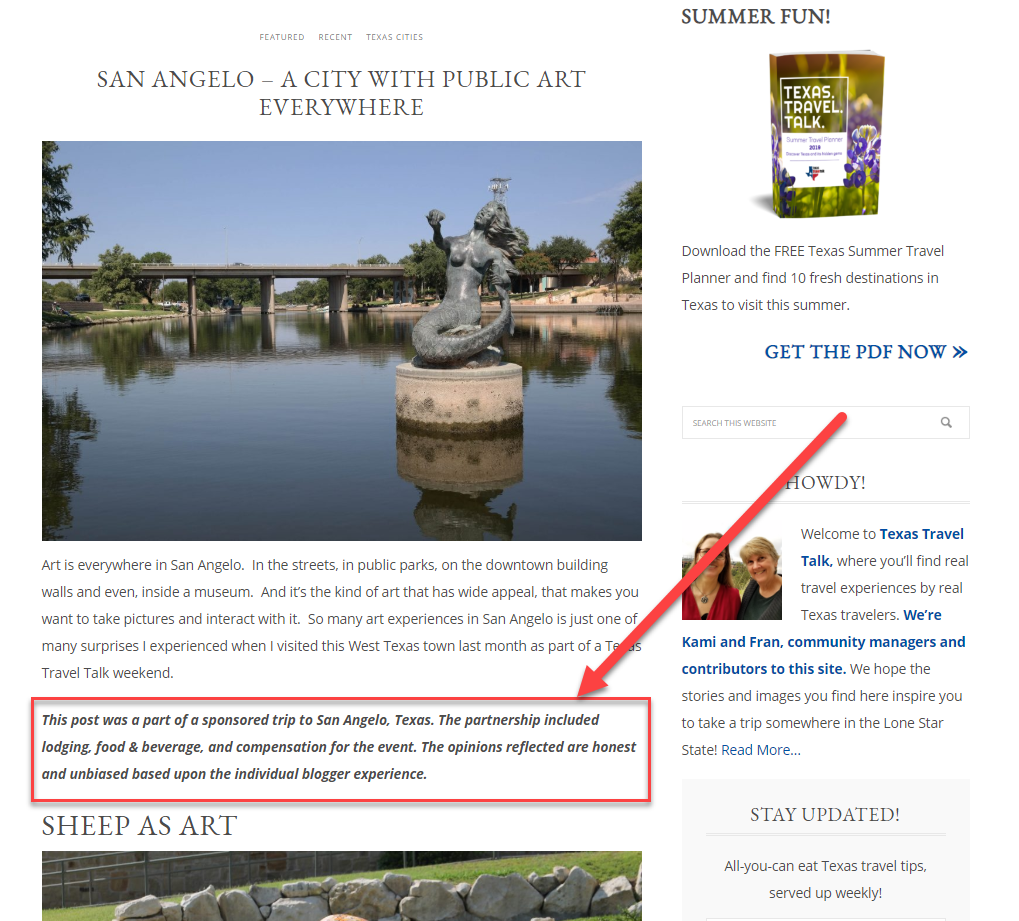
We also struggle as to the appropriate disclosure that we, as community managers, need to pursue. Since I’m not the actual influencer, I often use a more narrative disclosure like “So thrilled to be working with #client [insert name] or something like the tweet below.
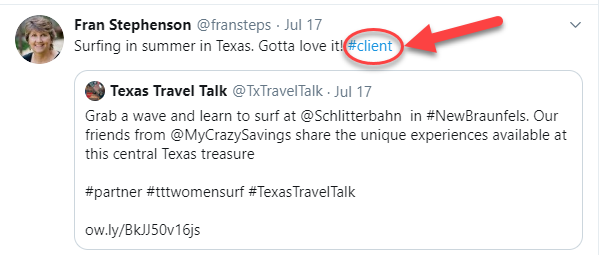
If you’re not working with influencers or find disclosure necessary, I am willing to bet that you’re following someone on Instagram or Twitter who talks about products, restaurants and experiences. Are THEY getting paid to promote those things? Maybe it’s worth asking.
Just last week, The Truth in Advertisiing group (the same one we linked to earlier in this story) filed a complaint with the FTC against Ryan ToysReview You Tube channel managed by the parents of 8-year-old Ryan who is often cited as You Tube’s highest performer with 21 million followers. They argued that children under age 5, the primary target of this channel, could not possibly know the difference between paid and organic content there. Read the full story here on the Today show website.
If there’s one thing you can take away from this discussion on disclosure, there’s a lot at stake. So, let’s go out there and be law abiding social media users.
How have you struggled with disclosure?
